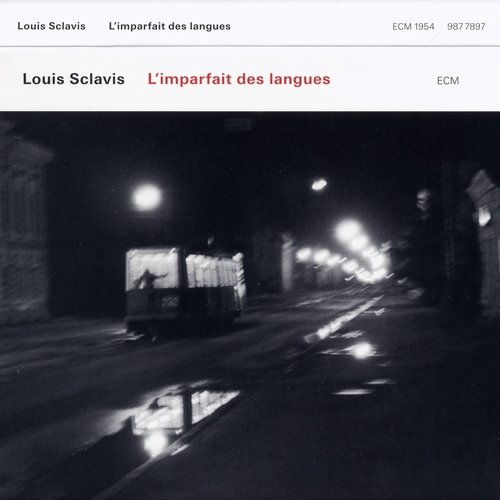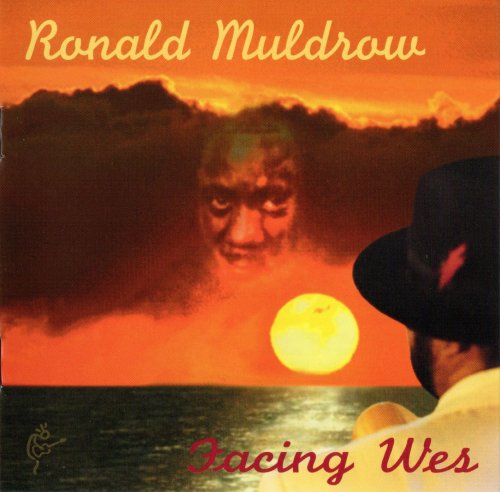Louis Sclavis - L'Imparfait Des Langues (2007)

Artist: Louis Sclavis
Title: L'Imparfait Des Langues
Year Of Release: 2007
Label: ECM
Genre: Jazz, Avant-Garde
Quality: FLAC (image+.cue,log,scans)
Total Time: 55:54
Total Size: 343 mb
WebSite: Album Preview
Tracklist: Title: L'Imparfait Des Langues
Year Of Release: 2007
Label: ECM
Genre: Jazz, Avant-Garde
Quality: FLAC (image+.cue,log,scans)
Total Time: 55:54
Total Size: 343 mb
WebSite: Album Preview
01. Premier Imparfait-A
02. L'idee Du Dialecte
03. Premier Imparfait-B
04. Le Verbe
05. Dialogue With A Dream
06. Annonce
07. Archeologie
08. Deuxieme Imparfait
09. Convocation
10. Palabre
11. Le Long Du Temps
12. L'ecrit Sacrifie
13. Story Of A Phrase
14. L'imparfait Des Langues
Personnel:
Louis Sclavis (clarinet, bass clarinet, soprano saxophone)
Paul Brousseau (guitar, keyboards, electronics, sampler)
Maxime Delpierre (guitars)
Marc Baron (alto saxophone)
Francois Merville (drums)
Saxophonist/clarinetist and composer Louis Sclavis has displayed a relentless pursuit of the unknown in his recordings for ECM in particular and in his long career in general. Take L'Imparfait des Langues, for instance, his 2007 outing for ECM. While he's never used two bands that were exactly the same on his recordings for the label, this one is easily his most adventurous. The only remaining member of his past ensembles is drummer par excellence François Merville. The other bandmembers -- alto saxophonist Marc Baron; keyboardist, guitarist, and electronician Paul Brousseau; and guitarist Maxime Delpierre -- are all younger musicians who have very diverse musical backgrounds (not all of them in jazz per se). Sclavis assembled and rehearsed this group for a festival in Monaco, using a new compositional method, where perhaps only eight or 16 bars were structured, allowing for maximum improvisation. When the festival was unexpectedly canceled due to the death of the country's monarch, Prince Rainier, the day before, Sclavis took the band into a Paris studio and recorded the album in a single day. The spontaneity and fresh crackle of interaction and interplay are unmistakable. Sclavis led the band but used instinct instead of control to get the job done. The textures and colors created on tracks such as "La Verbe," built around a single, repetitive melodic fragment, bring the band closer to the sound of Soft Machine in their later period than any contemporary jazz group. The horns work against one another in the middle, playing short contrapuntal tones and phrases, while the guitars and keyboards color everything around them in a gauzy darkness as only Merville's drums hold the entire tune together, accentuating the beautiful strummed trills by Delpierre.
Elsewhere, as on "Palabre," a guitar riff creates the basis for the horn players to exchange and challenge one another once the head has been constructed atop the guitar. Here, the skeletal funky beginning offers shades of Eastern modality and melody, Ornette Coleman-style harmonics, and an improvisation between Sclavis and Baron so symbiotic that it is mind-blowing. There are ideas closer to what listeners expect from European jazz these days as well, such as on the wonderfully ethereal and knottily aggressive "L'Idée du Dialecte," where different musical languages are held -- however loosely -- inside the Euro jazz idiom. "Story of a Phrase" is wonderfully abrasive and slow as Delpierre uses a mild distortion pedal to play an angular -- if slightly restrained -- metal riff and both Baron and Merville find ways of creating both a melodic language and polyrhythmic counterpoint to the pulsing guitar lines. Sclavis takes his solo on the soprano and delves deep into the space between, using the guitar line to bounce off several others, all counter to the rhythms being laid down. Throughout, ambient sounds, small drones, and found samples are littered, layered, and slotted between the various players -- and this happens on virtually every track. Yes, this is most certainly a European jazz album, and a brave step for Sclavis, who probably considers this the next logical step in creating his encyclopedia of sound. But given the young ages of the players, he is stretched as well. L'Imparfait des Langues is a welcome and utterly fascinating surprise that will no doubt bring his fans closer, and hopefully extend to those who find themselves drawn to progressive music in general.
Elsewhere, as on "Palabre," a guitar riff creates the basis for the horn players to exchange and challenge one another once the head has been constructed atop the guitar. Here, the skeletal funky beginning offers shades of Eastern modality and melody, Ornette Coleman-style harmonics, and an improvisation between Sclavis and Baron so symbiotic that it is mind-blowing. There are ideas closer to what listeners expect from European jazz these days as well, such as on the wonderfully ethereal and knottily aggressive "L'Idée du Dialecte," where different musical languages are held -- however loosely -- inside the Euro jazz idiom. "Story of a Phrase" is wonderfully abrasive and slow as Delpierre uses a mild distortion pedal to play an angular -- if slightly restrained -- metal riff and both Baron and Merville find ways of creating both a melodic language and polyrhythmic counterpoint to the pulsing guitar lines. Sclavis takes his solo on the soprano and delves deep into the space between, using the guitar line to bounce off several others, all counter to the rhythms being laid down. Throughout, ambient sounds, small drones, and found samples are littered, layered, and slotted between the various players -- and this happens on virtually every track. Yes, this is most certainly a European jazz album, and a brave step for Sclavis, who probably considers this the next logical step in creating his encyclopedia of sound. But given the young ages of the players, he is stretched as well. L'Imparfait des Langues is a welcome and utterly fascinating surprise that will no doubt bring his fans closer, and hopefully extend to those who find themselves drawn to progressive music in general.
![Magda Mayas' Filamental - Murmur (2026) [Hi-Res] Magda Mayas' Filamental - Murmur (2026) [Hi-Res]](https://www.dibpic.com/uploads/posts/2026-02/1771663724_i3cjtptz4ae2l_600.jpg)



![Juhani Aaltonen - Nostalgia (2026) [Hi-Res] Juhani Aaltonen - Nostalgia (2026) [Hi-Res]](https://img.israbox.com/img/2026-02/20/ocw86a7rfvhkxc576ic9tz17o.jpg)

![Hans Backenroth - For Ray, Milt & MJQ (2026) [Hi-Res] Hans Backenroth - For Ray, Milt & MJQ (2026) [Hi-Res]](https://www.dibpic.com/uploads/posts/2026-02/1771506232_lbvu33sttdof0_600.jpg)

